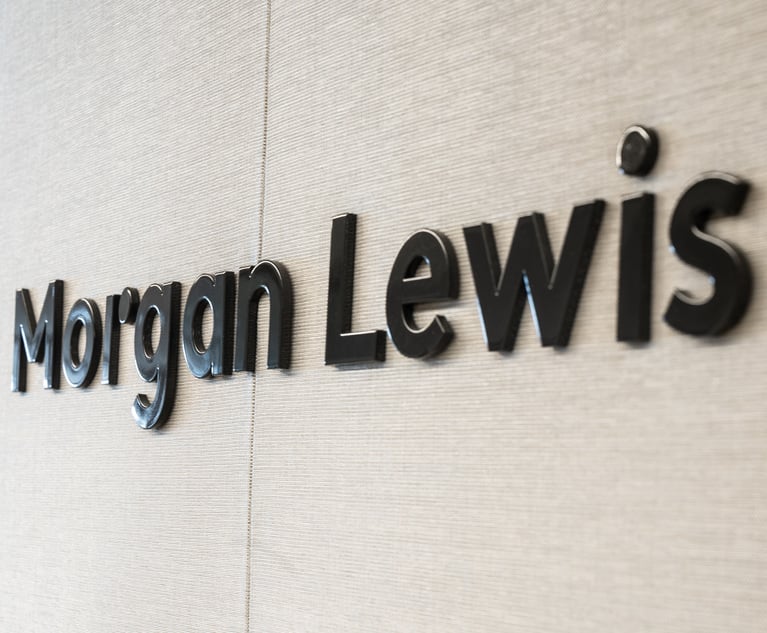Legal Services Board pledges to work better with regulators
The Legal Services Board (LSB) has restated its intention to work better with industry regulators following a series of criticisms by bodies including the Solicitors Regulation Authority (SRA) and the Bar Standards Board (BSB). The LSB – the independent body responsible for overseeing the regulation of legal services in England and Wales – this month released its finalised business plan for 2013-14, with the plan "re-scoped significantly"following complaints of micro-management and unnecessary intervention.
April 11, 2013 at 07:03 PM
3 minute read
LSB responds to accusations from industry regulators of micro-management and overstepping its remit
The Legal Services Board (LSB) has restated its intention to work better with industry regulators following a series of criticisms by bodies including the Solicitors Regulation Authority (SRA) and the Bar Standards Board (BSB).
The LSB – the independent body responsible for overseeing the regulation of legal services in England and Wales – this month released its finalised business plan for 2013-14, with the plan "re-scoped significantly" following complaints of micro-management and unnecessary intervention.
The business plan details the LSB's goals to "work with regulators in a relationship of openness and trust"; avoid duplication of work undertaken by others; assure and improve the performance of approved regulators in areas including diversity; help consumers choose and use legal services; and address risks in the field of regulation. The body, which came into force in 2010 in the wake of the Legal Services Act (LSA), has the ability to strip underperforming professional bodies of their powers.
In a separate document, the LSB has also responded to criticism it received during a consultation on its business plan, which concluded in March. The consultation saw several respondents question the role of the LSB, expressing concern about the way the body interprets and exercises its statutory remit.
Earlier this year SRA chief executive Antony Townsend argued there was an "imbalance"in the LSB's approach to its regulatory objectives, "which tends to see the LSA in terms of narrow economic liberalisation, rather than the carefully balanced approach the Act was designed to achieve".
Townsend also accused the oversight regulator of over-stepping its remit, describing its past actions and future plans as having a tendency "to seek to intervene in the front-line regulators' exercise of their discretion, thus risking undermining the regulators' proper independence, skewing regulatory activity away from the highest risks, and leading to unhelpful and wasteful duplications of function".
The LSB has rejected the accusation of micro-management and duplication, countering that it does "not accept that oversight is a passive responsibility – although we continue to be clear that regulators have the primary responsibility for taking decisions".
It also "rejected utterly" a "totally un-evidenced assertion"by the SRA that the LSB is at risk of being too close to Government.
"There is no hotline from the LSB to the Ministry of Justice," said a spokesperson. "Obviously there are going to be tensions between the regulator and the regulated, but we have worked hard to ensure that these are addressed in an open and transparent manner."
Meanwhile, BSB director Vanessa Davies accused the LSB of conflating statutory and discretionary objectives and of giving them equal weight. The LSB responded to this charge by acknowledging it still has "work to do to convince stakeholders that that is not the case".
Other groups from the legal profession to respond to the consultation include the Bar Council, the Law Society and the Chartered Institute of Legal Executives.
The LSB's budget for 2013-14 stands at £4.45m, a £50,000 decrease on last year's running costs.
Related: Legal Services Board invites applications for panel spots.
This content has been archived. It is available through our partners, LexisNexis® and Bloomberg Law.
To view this content, please continue to their sites.
Not a Lexis Subscriber?
Subscribe Now
Not a Bloomberg Law Subscriber?
Subscribe Now
NOT FOR REPRINT
© 2025 ALM Global, LLC, All Rights Reserved. Request academic re-use from www.copyright.com. All other uses, submit a request to [email protected]. For more information visit Asset & Logo Licensing.
You Might Like
View All
Morgan Lewis to Relocate to Former Goldman Sachs UK Building in £6.6M Annual Deal
1 minute read
Australian Class Action to be Launched Against Google Over Display Advertising
4 minute read
Reed Smith Bolsters Corporate Team With Markets Partner Hire in London
2 minute read
Trinity International Expands With Singapore Office, Eyes Growth in Infrastructure and Energy
Trending Stories
- 1Apply Now: Superior Court Judge Sought for Mountain Judicial Circuit Bench
- 2Harrisburg Jury Hands Up $1.5M Verdict to Teen Struck by Underinsured Driver
- 3Former Director's Retaliation Suit Cleared to Move Forward Against Hospice Provider
- 4New York Judge Steps Down After Conviction for Intoxicated Driving
- 5Keys to Maximizing Efficiency (and Vibes) When Navigating International Trade Compliance Crosschecks
Who Got The Work
J. Brugh Lower of Gibbons has entered an appearance for industrial equipment supplier Devco Corporation in a pending trademark infringement lawsuit. The suit, accusing the defendant of selling knock-off Graco products, was filed Dec. 18 in New Jersey District Court by Rivkin Radler on behalf of Graco Inc. and Graco Minnesota. The case, assigned to U.S. District Judge Zahid N. Quraishi, is 3:24-cv-11294, Graco Inc. et al v. Devco Corporation.
Who Got The Work
Rebecca Maller-Stein and Kent A. Yalowitz of Arnold & Porter Kaye Scholer have entered their appearances for Hanaco Venture Capital and its executives, Lior Prosor and David Frankel, in a pending securities lawsuit. The action, filed on Dec. 24 in New York Southern District Court by Zell, Aron & Co. on behalf of Goldeneye Advisors, accuses the defendants of negligently and fraudulently managing the plaintiff's $1 million investment. The case, assigned to U.S. District Judge Vernon S. Broderick, is 1:24-cv-09918, Goldeneye Advisors, LLC v. Hanaco Venture Capital, Ltd. et al.
Who Got The Work
Attorneys from A&O Shearman has stepped in as defense counsel for Toronto-Dominion Bank and other defendants in a pending securities class action. The suit, filed Dec. 11 in New York Southern District Court by Bleichmar Fonti & Auld, accuses the defendants of concealing the bank's 'pervasive' deficiencies in regards to its compliance with the Bank Secrecy Act and the quality of its anti-money laundering controls. The case, assigned to U.S. District Judge Arun Subramanian, is 1:24-cv-09445, Gonzalez v. The Toronto-Dominion Bank et al.
Who Got The Work
Crown Castle International, a Pennsylvania company providing shared communications infrastructure, has turned to Luke D. Wolf of Gordon Rees Scully Mansukhani to fend off a pending breach-of-contract lawsuit. The court action, filed Nov. 25 in Michigan Eastern District Court by Hooper Hathaway PC on behalf of The Town Residences LLC, accuses Crown Castle of failing to transfer approximately $30,000 in utility payments from T-Mobile in breach of a roof-top lease and assignment agreement. The case, assigned to U.S. District Judge Susan K. Declercq, is 2:24-cv-13131, The Town Residences LLC v. T-Mobile US, Inc. et al.
Who Got The Work
Wilfred P. Coronato and Daniel M. Schwartz of McCarter & English have stepped in as defense counsel to Electrolux Home Products Inc. in a pending product liability lawsuit. The court action, filed Nov. 26 in New York Eastern District Court by Poulos Lopiccolo PC and Nagel Rice LLP on behalf of David Stern, alleges that the defendant's refrigerators’ drawers and shelving repeatedly break and fall apart within months after purchase. The case, assigned to U.S. District Judge Joan M. Azrack, is 2:24-cv-08204, Stern v. Electrolux Home Products, Inc.
Featured Firms
Law Offices of Gary Martin Hays & Associates, P.C.
(470) 294-1674
Law Offices of Mark E. Salomone
(857) 444-6468
Smith & Hassler
(713) 739-1250








